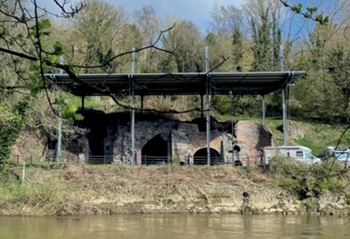Heat Energy: The Nation’s Forgotten Crisis
On 5 June 2015, The Institution of Mechanical Engineers published Heat Energy: the Nation’s Forgotten Crisis in the context of its vision of ‘Improving the world through engineering'.
The report suggests that the UK’s existing heat infrastructure evolved during a time of abundant supplies of affordable North Sea gas, but that it is not suitable to meet the country’s future energy security challenges, social needs or decarbonisation aspirations.
It states that, ‘The provision of heat in the UK for domestic, commercial and industrial applications is largely based on the consumption of gas and delivered through an infrastructure developed at the end of the last century. This infrastructure was designed and engineered to exploit abundant gas reserves located under the North Sea. However, these are depleting rapidly and, as the nation’s gas imports rise through our undersea pipeline connections and via our LNG receiving terminals to maintain supply, the time to focus attention on how best to transition to new energy sources for heat is long overdue.’
It proposes that this is an order of magnitude more complex that decarbonising energy and will require renewal of the nation’s heat infrastructure.
The report recommendations that the government:
- Declare all UK building stock ‘national infrastructure’ and instigate a legislatively-driven insulation programme with incentives, such as a reduction in stamp duty, for homeowners to install insulation to national standards. For those who cannot afford to pay, a national scheme to cover the cost of work would be funded by general taxation.
- Recognise the key role of the installer community and instigate a mandatory national installer ‘sustainable heat’ certification scheme similar to CORGI certification / Gas Safe Register for gas installers.
- Tackle the provision of larger pieces of national heat infrastructure, as well as the interconnection and integration of heat systems with other energy networks.
Dr Tim Fox, lead author of the report said: “The UK’s housing stock is some of the most poorly insulated in the developed world, largely because of the age of much of the country's domestic dwellings and the failure of successive Governments to take the meaningful action required on energy efficiency measures. Poorly insulated homes cost the NHS an estimated £1.36 billion every year, with one estimate placing 6.5 million UK homes in fuel poverty. In addition, the amount of money and fuel that is wasted on heating poorly insulated homes is appalling, and the UK is facing a future of depleting UK gas reserves. It is clear that it is time for urgent action to improve energy efficiency in UK homes.
[edit] Find out more
[edit] Related articles on Designing Buildings Wiki
- A measure of net well-being that incorporates the effect of housing environmental impacts.
- Adapting 1965-1980 semi-detached dwellings in the UK to reduce summer overheating and the effect of the 2010 Building Regulations.
- Anatomy of low carbon retrofits: evidence from owner-occupied superhomes.
- Energy companies obligation ECO.
- Fuel poverty.
- Green deal scrapped.
- Housing contribution to regeneration.
- The cold man of europe 2015.
- The real cost of poor housing.
- Transitioning to eco-cities: Reducing carbon emissions while improving urban welfare.
- Well-being and regeneration: Reflections from Carpenters Estate.
- Wellbeing.
Featured articles and news
The act of preservation may sometimes be futile.
Twas the site before Christmas...
A rhyme for the industry and a thankyou to our supporters.
Plumbing and heating systems in schools
New apprentice pay rates coming into effect in the new year
Addressing the impact of recent national minimum wage changes.
EBSSA support for the new industry competence structure
The Engineering and Building Services Skills Authority, in working group 2.
Notes from BSRIA Sustainable Futures briefing
From carbon down to the all important customer: Redefining Retrofit for Net Zero Living.
Principal Designer: A New Opportunity for Architects
ACA launches a Principal Designer Register for architects.
A new government plan for housing and nature recovery
Exploring a new housing and infrastructure nature recovery framework.
Leveraging technology to enhance prospects for students
A case study on the significance of the Autodesk Revit certification.
Fundamental Review of Building Regulations Guidance
Announced during commons debate on the Grenfell Inquiry Phase 2 report.
CIAT responds to the updated National Planning Policy Framework
With key changes in the revised NPPF outlined.
Councils and communities highlighted for delivery of common-sense housing in planning overhaul
As government follows up with mandatory housing targets.



















